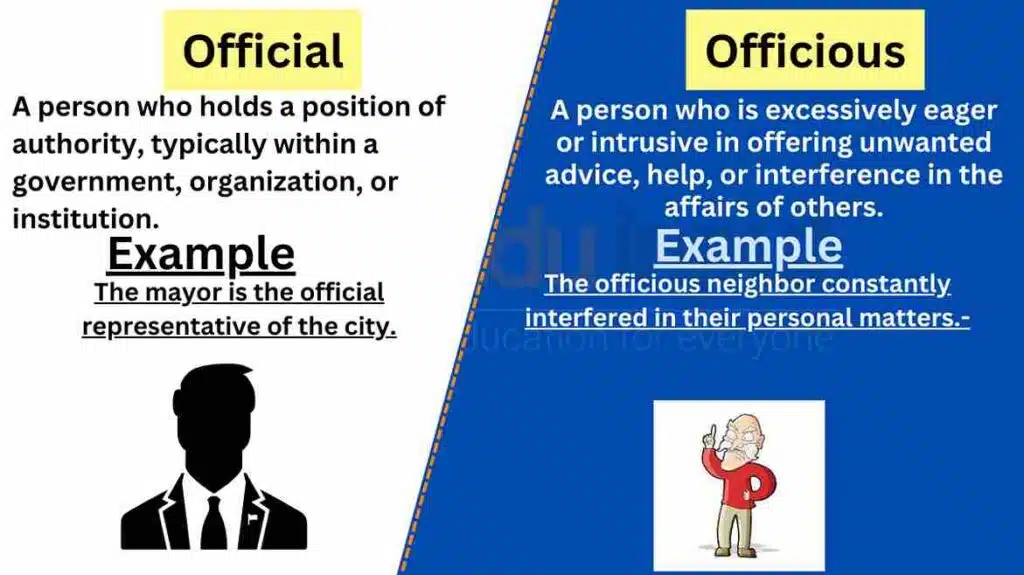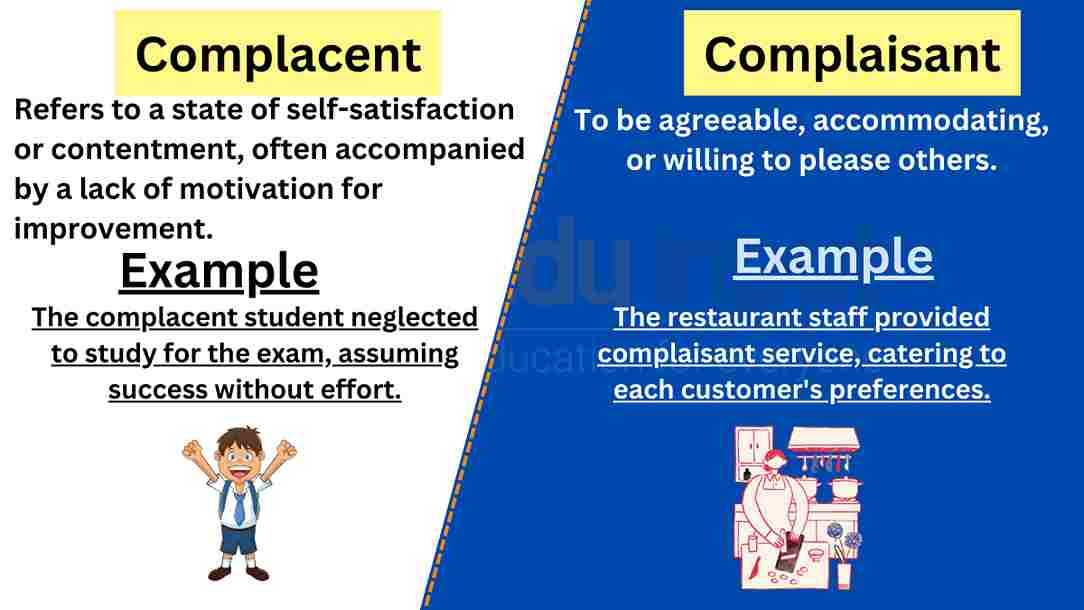Official vs Officious-Difference Between And Examples
The English language is replete with words that may sound alike but possess distinct meanings and implications. Two such words that often cause confusion are “official” and “officious.” While they may share a similar root, these terms have different connotations and usage.
This article aims to unravel the disparities between “official” and “officious,” exploring their individual definitions and contexts. By understanding their nuances, we can communicate more effectively and avoid misunderstandings. Join us as we delve into the worlds of authority and unwanted interference.

Meanings and Examples
Official Meaning
The meaning of “Official” refers to a person who holds a position of authority, typically within a government, organization, or institution. It can also describe something that is formally recognized or authorized.
Official Examples
- “The mayor is the official representative of the city.”
- “Please consult the official website for accurate information.”
- “He received an official letter confirming his appointment.”
Officious Meaning
The meaning of “Officious” describes a person who is excessively eager or intrusive in offering unwanted advice, help, or interference in the affairs of others. It implies an unwarranted or self-appointed sense of authority.
Officious Examples
- “The officious neighbor constantly interfered in their personal matters.”
- “He took on an officious tone, trying to manage the situation without being asked.”
- “The officious salesperson followed me around the store, offering unsolicited suggestions.”
Difference Between Official and Officious
| Official | Officious | |
| Meaning | Person in a position of authority or something authorized | Intrusive and meddling, offering unwanted advice or interference |
| Example | “The mayor is the official representative of the city.” | “The officious neighbor constantly interfered in their personal matters.” |
| Usage | Government, organizations, authorized matters | Interpersonal interactions, unwanted interference, intrusive behavior |
| Context | Government positions, authorized roles, formal recognition | Interfering in others’ affairs, self-appointed authority, unsolicited advice |
Usage in a Paragraph
The term “official” holds significance in the realm of government, organizations, and authorized matters. An official refers to a person who holds a position of authority and is responsible for carrying out specific duties and representing a particular entity. They possess formal recognition and are entrusted with the power to make decisions, enforce regulations, or represent their organization or government. For example, the mayor is the official representative of a city, the official website provides accurate information, and official letters validate appointments or announcements.
Conversely, “officious” ventures into the realm of unwanted interference and intrusive behavior. It describes individuals who go beyond their rightful boundaries and offer unwanted advice, help, or involvement in the affairs of others. Officious people often assume a self-appointed sense of authority, despite not being asked or authorized to do so. They may intrude upon personal matters or impose their opinions without invitation. Examples include officious neighbors who meddle in others’ affairs or salespeople who excessively follow customers, offering unsolicited suggestions.
While “official” and “officious” may sound similar, they carry distinct meanings and implications. “Official” relates to positions of authority and authorized matters, representing recognized roles within governments, organizations, or institutions. On the other hand, “officious” delves into unwanted interference and intrusive behavior, describing individuals who offer unsolicited advice or involve themselves in the affairs of others without invitation. By understanding these differences, we can navigate conversations and interactions more effectively, ensuring clarity and respect for boundaries.







Leave a Reply